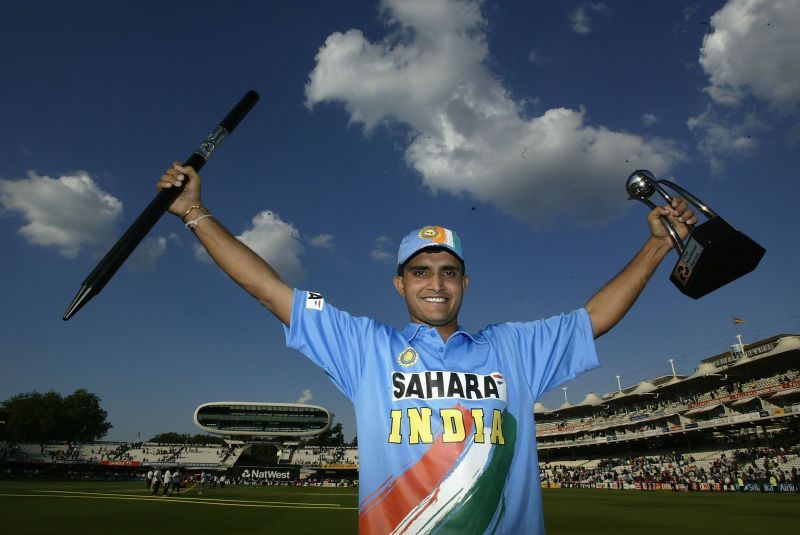
5 cricketers that Sourav Ganguly helped attain international acclaim
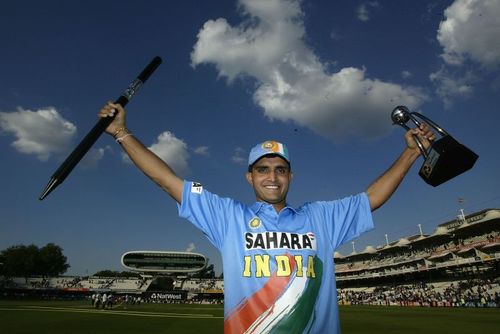
In the early '90s, world cricket found itself plunged into an abyss and fought a seemingly formidable new foe called match-fixing. Many international players were found involved. Among those found guilty also included India captain Mohammad Azharuddin and Ajay Jadeja. Azharuddin, ironically, had just been re-appointed as India’s captain after disastrous results under Sachin Tendulkar.
In what is known as ‘Indian cricket’s darkest hour,’ up stepped Sourav Ganguly to take over the reins. Under him, India became a very competitive side, injecting the team with a much-needed aggression quotient. More importantly, his policy of infusing the team with youth paid rich dividends. The side consisted of many young players under Ganguly. Here is a look at five cricketers that Sourav Ganguly helped attain international acclaim:
5. Mohammad Kaif
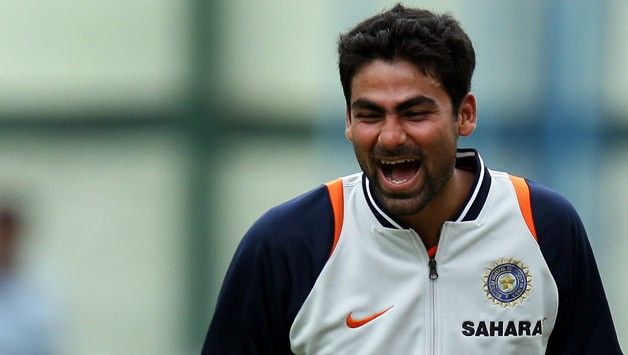
Not so long ago, Mohammad Kaif was the toast of a cricket-crazy nation, especially after he snatched the improbable victory at the NatWest Series final against England at Lord's in the company of Yuvraj Singh in 2002.
It was his success at number seven that gave Sourav Ganguly-led India a winning formula, which lasted nearly for three years and India became a potent one-day force both at home and abroad. Ganguly was the first one to implement the seven-batsmen policy in the Indian team, relying more on the batting prowess rather than a specialist wicket-keeper. By utilising Rahul Dravid's glove skills, he was able to squeeze in Mohammad Kaif, which finally turned out to be a masterstroke.
Indeed, Kaif could not attain as much international acclaim as the others in this list, but it cannot be denied that Ganguly had unearthed another talented youngster for his team.
4. Harbhajan Singh
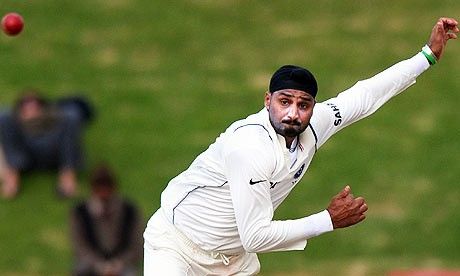
Harbhajan Singh had made his Test and One Day International (ODI) debuts in early 1998. However, his initial career was affected by the legality of his bowling action, as well as several disciplinary incidents. Feeling defeated by disciplinary issues, the chucking saga, an ordinary international track record and economic pressure at home, he was contemplating moving to the United States to drive trucks for a living. It was during this time that Ganguly fought for his selection.
In 2001, with leading leg spinner Anil Kumble injured, Harbhajan's career was resuscitated after the Bengal Tiger called for his inclusion in the Border-Gavaskar Trophy series. In that series victory over Australia, the Turbanator established himself as the team's leading spinner by taking 32 wickets, becoming the first Indian bowler to take a hat-trick in Test cricket.
Heaping praise on Sourav Ganguly, the ace off-spinner said in an interview how former India captain taught them to win overseas. "Dada was a brilliant captain, there is no doubt about it. He taught us how to win outside India. The way he led the team was an example for everyone. It was a difficult time for India with all the match-fixing. I admire him a lot. He is a great human being.”
3. Yuvraj Singh
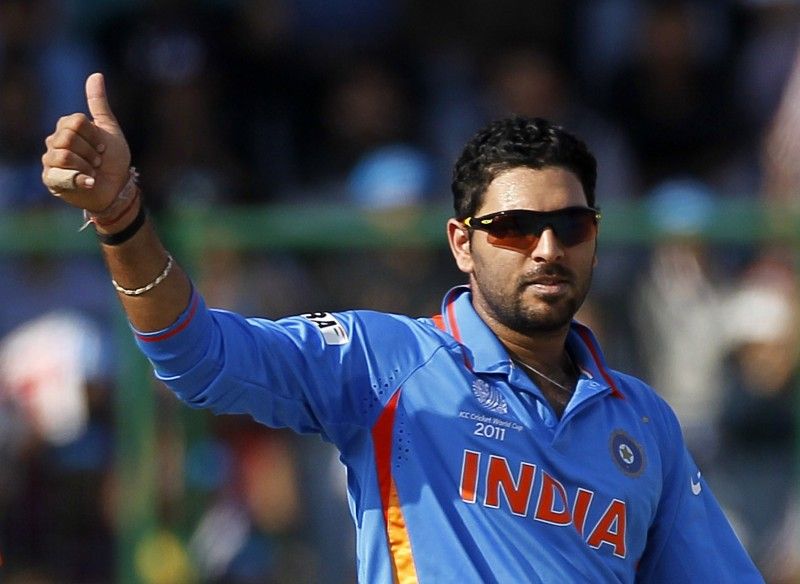
Yuvraj Singh is one of India’s most-loved cricketers, a World Cup hero, a cancer survivor and a neat hitter of the ball. But if not for the former Indian captain, would we have known the star batsman?
Yuvraj made his debut under Ganguly's captaincy in the ICC Knockout Trophy (later called the Champions Trophy) in Nairobi in October 2000. That was the start of a new generation of cricketers as India tried to wriggle out of the match-fixing scandal.
The dashing batsman from Punjab caught the attention with a gutsy 80-ball 84 against a quality Australian pace attack led by Glenn McGrath and Brett Lee at Nairobi's Gymkhana ground. India won that quarterfinal match by 20 runs. By running out the dangerous Michael Bevan and holding Ian Harvey's catch, Yuvraj won the Man of the Match award and more importantly, won Ganguly's trust.
"My favourite captain was Sourav Ganguly. I learnt a lot from him and my career flourished under him the most. He infused the feeling in us that we could win a series abroad," Yuvraj had said in an interview. He was dropped during his initial days because he was considered too young. It was Ganguly who brought him into the team, several times against the wishes of the selectors. That was when Yuvraj Singh famously remarked: “I'm ready to die for such a captain.”
2. Zaheer Khan
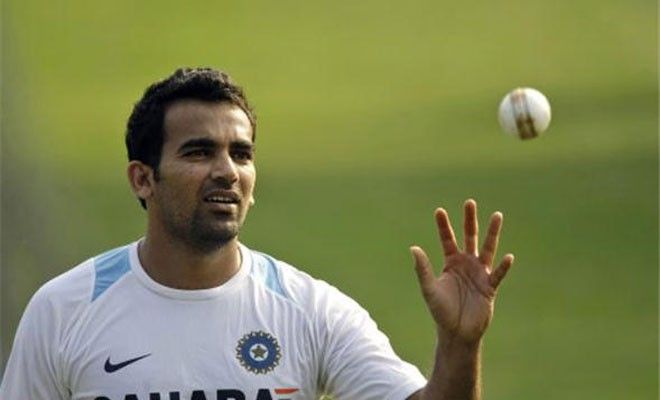
In the late 90s, Zaheer Khan landed in Mumbai from Shrirampur to chase his dreams. He questioned the authority of captains, and did not get along with several coaches. The seamer wasn't seen as a rebel, but despite his excellent Ranji statistics, he was not getting a break. Zaheer made his name playing for Baroda. In the 2000/01 Ranji Trophy final against Railways, Zaheer was Man of the Match with eight wickets, including a second-innings haul of 5/43, in Baroda's narrow 21-run victory.
Ganguly, who had also been appointed as the captain in 2000, was looking to bolster a team that was crumbling under match-fixing. Khan's hostile seam, especially his fast, inch-perfect yorkers struck the Prince of Calcutta, and he pushed the selection committee to look into the young pacer.
Zaheer was selected in 2000 for the first intake of the National Cricket Academy in Bangalore. He made his Test debut against Bangladesh and ODI debut against Kenya during the ICC KnockOut Trophy in the same year, where the captain made him open the bowling. The Baroda speedster got the crucial wickets of Adam Gilchrist and Steve Waugh on his debut.
The rest, as they say, is history.
1. Virender Sehwag
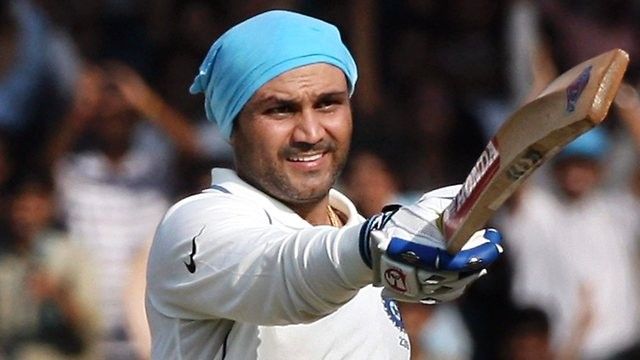
The Nawab of Najafgarh, Virender Sehwag, has attributed most of his success to former Indian captain Sourav Ganguly.
Sehwag heaped praise on the erstwhile captain and recalled how Ganguly had confidence in him. He had sacrificed his opening spot for him in limited-overs cricket and had been the main reason why Sehwag was given a chance to debut in Tests.
In an interview, he said, "I will always be grateful to Sourav Ganguly for giving me a chance to play Test cricket. The selectors at that point were sceptical about my performances, and I wasn't known as a Test cricketer. However, he showed faith in me, showed me the way and here I am now. If he didn't back me, I wouldn't have played test cricket, if I didn't play tests then, I wouldn't have been able to score so many centuries or that triple century. So down the line, I attribute my success to him."
Thanks to Ganguly, Sehwag burst onto the Test scene with a century on debut against South Africa in 2001, and also became the only batsman to score the fastest triple century of all time twice.